David Fincher, a name synonymous with cinematic brilliance, has etched his mark on the world of film.
With a career spanning over three decades, this American auteur has not only left an indomitable legacy but has also redefined the art of storytelling through cinema.
Fincher’s cinematic journey is a tale of innovation, exploration, and artistic evolution.
From his early days as an apprentice in the world of visual effects to his emergence as a trailblazing director, his films have pushed the boundaries of storytelling, delving into the darkest corners of the human psyche and challenging societal norms.
With each project, he has demonstrated an unwavering commitment to his unique vision and the art of visual storytelling.
The Early Days: An Apprentice’s Journey
Before delving into Fincher’s most celebrated works, it’s essential to trace his beginnings in the world of filmmaking.
David Fincher was born in Denver, Colorado, in 1962. His father, Jack Fincher, was a journalist, which instilled in him a deep appreciation for storytelling and the art of visual communication.
His early exposure to photography and cinematography eventually laid the groundwork for his cinematic career.
Fincher’s journey in the film industry began with a job at Industrial Light & Magic, George Lucas’s visual effects company.
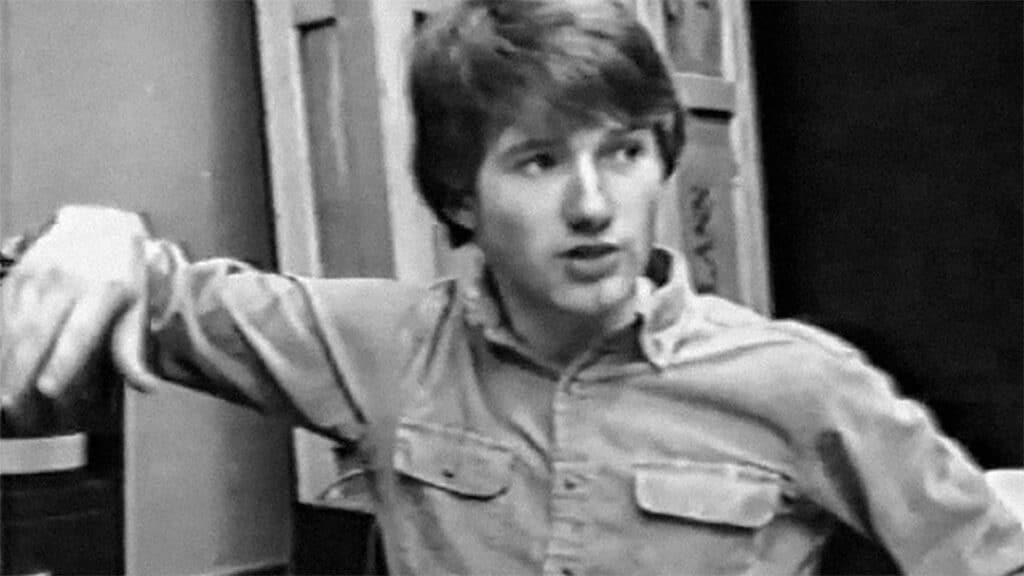
Working in the visual effects department on films like Return of the Jedi and Indiana Jones and the Temple of Doom, Fincher honed his skills in the art of visual storytelling.
It was here that he developed an appreciation for detail, precision, and the craft of filmmaking.
In 1984, Fincher directed his first commercial for the American Cancer Society, which was well-received for its striking visuals and storytelling.
This marked the start of his career as a director and set the stage for what would become a series of groundbreaking films.
Alien³: A Rocky Start

Fincher’s feature film debut came with Alien³ in 1992.
It was a film that faced its fair share of challenges, including script rewrites, a troubled production, and studio interference.
Despite these difficulties, Fincher managed to infuse his visual style into the film.
Alien³ might not have been a critical or commercial success, but it laid the foundation for many of the themes and techniques that would come to define his later work.
One aspect that Alien³ showcased was Fincher’s meticulous attention to detail.
The film’s dark and brooding atmosphere, the usage of practical effects, and the unique xenomorph design all highlighted his commitment to creating immersive and visually arresting worlds.
This attention to detail would become a recurring theme in Fincher’s filmography.
Se7en: A Masterpiece of Psychological Thrills
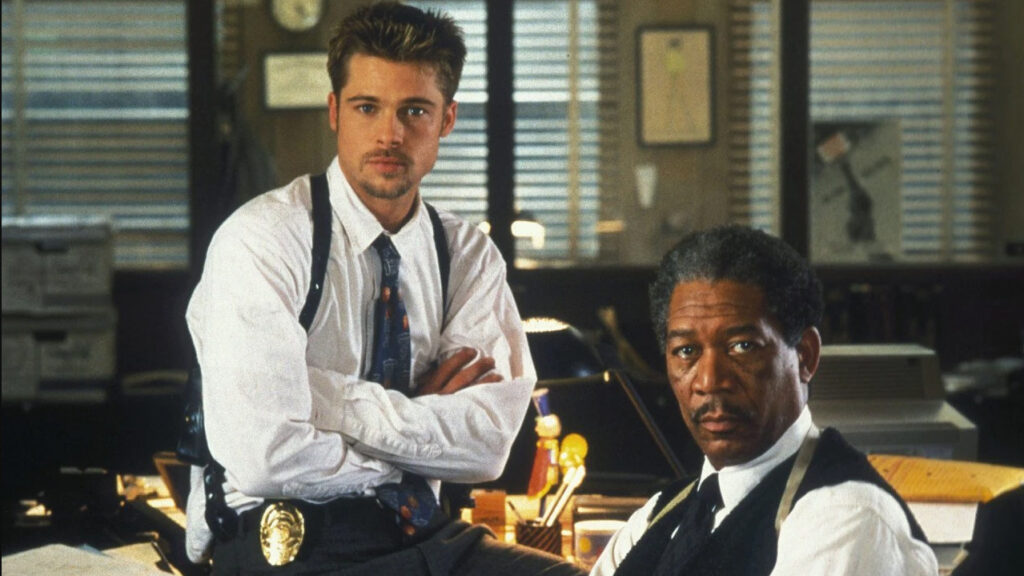
If there’s one film that truly put David Fincher on the map, it’s Se7en.
Released in 1995, this psychological thriller starring Brad Pitt and Morgan Freeman is a masterclass in suspense and visual storytelling.
Fincher’s obsession with detail is evident in every frame of the film.
The story of two detectives hunting a serial killer who uses the seven deadly sins as his modus operandi is a dark and twisted exploration of human nature.
Fincher’s signature style of meticulous shot composition and his ability to create a palpable sense of dread made Se7en a groundbreaking cinematic experience.
One of the most memorable aspects of Se7en is its cinematography. Darius Khondji’s work behind the camera, coupled with Fincher’s precise direction, created a visually stunning and haunting world.
The film’s use of rain-soaked streets, grimy settings, and stark lighting became a trademark of Fincher’s aesthetic.
The film’s climax, with the reveal of the killer’s identity, is a testament to Fincher’s skill in building suspense and maintaining audience engagement.
The chilling portrayal of the killer, played by Kevin Spacey, was a highlight of the film and showcased Fincher’s ability to bring out stellar performances from his actors.
Fight Club: A Modern Cult Classic
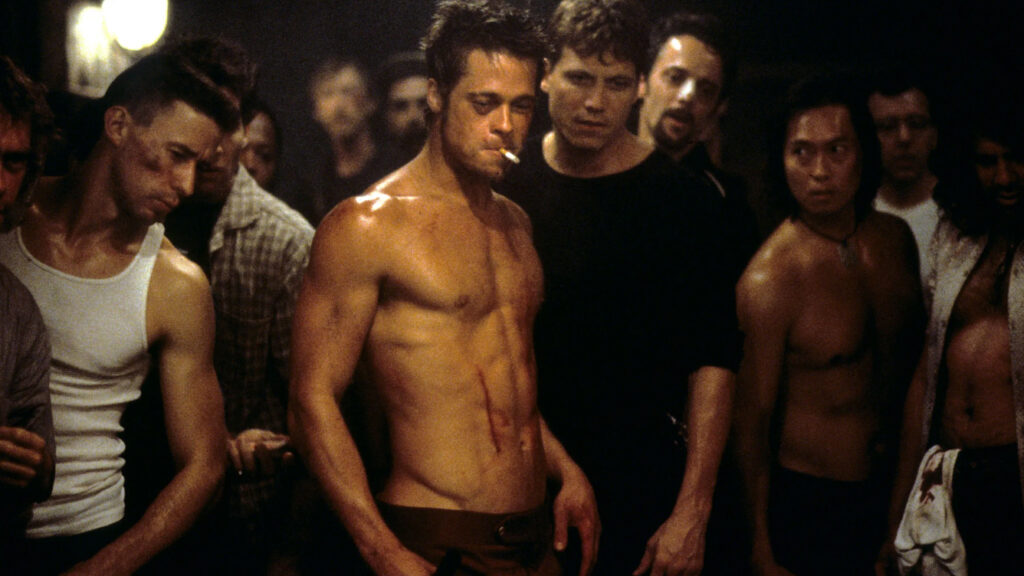
Fight Club, released in 1999, is one of David Fincher’s most iconic and controversial films.
Starring Edward Norton, Brad Pitt, and Helena Bonham Carter, the film is a searing critique of consumerism and a deeply philosophical exploration of identity.
In Fight Club, Fincher continued to refine his visual style, using innovative techniques such as subliminal messages and seamless visual effects to blur the line between reality and fantasy.
The film’s use of split-screen and subliminal flashes is a prime example of how Fincher pushes the boundaries of cinematic storytelling.
The film’s take on nihilism and societal disillusionment struck a chord with a generation searching for meaning in a world driven by materialism.
The character of Tyler Durden, played by Brad Pitt, became an iconic figure and represented a countercultural rebellion that resonated with many.
Fight Club is a prime example of how Fincher’s films often delve into the darker recesses of the human psyche.
It explores themes of alienation, male identity, and the destructive aspects of modern society.
The film’s infamous line, “The first rule of Fight Club is: you do not talk about Fight Club,” has become a pop culture staple, underscoring the film’s impact on contemporary discourse.
Panic Room: A Tense Thriller

In 2002, David Fincher directed Panic Room, a thriller starring Jodie Foster and Kristen Stewart.
While it may not be as celebrated as some of his other works, the film is a testament to Fincher’s ability to create tension within confined spaces.
The entire film takes place inside a brownstone’s panic room, where a mother and daughter are trapped by burglars.
Fincher’s use of tight spaces and his knack for building suspense are on full display here.
The camera work and meticulous attention to detail in the panic room’s design elevate the film to a level of visual and psychological intensity that is characteristic of his style.
Although Panic Room is not as ambitious in scope as some of his other films, it demonstrates Fincher’s versatility as a director.
It also marks the beginning of his collaboration with Trent Reznor, who would go on to compose the scores for many of Fincher’s future projects.
Zodiac: A Fascination with Obsession
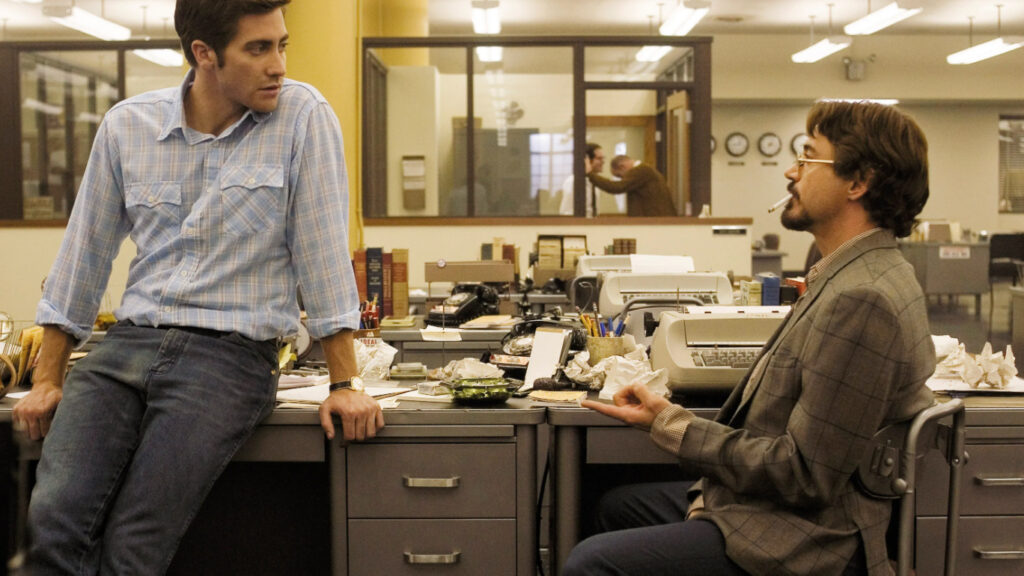
Released in 2007, Zodiac is a crime thriller based on the true story of the hunt for the elusive Zodiac Killer in San Francisco during the late 1960s and early 1970s.
The film stars Jake Gyllenhaal, Mark Ruffalo, and Robert Downey Jr. It delves into the obsessive nature of those who investigate the case and the toll it takes on their lives.
Fincher’s fascination with detail and obsession is woven into the very fabric of Zodiac.
The film is a meticulously crafted procedural, and Fincher’s direction immerses the audience in the minutiae of the investigation.
The film’s dedication to historical accuracy and period-appropriate settings adds an extra layer of authenticity.
One of the most remarkable aspects of Zodiac is its ability to maintain suspense even though the audience knows the real-life case remains unsolved.
Fincher’s storytelling prowess keeps the viewer engaged throughout the nearly three-hour runtime, making it a true testament to his mastery of suspense.
The Curious Case of Benjamin Button: A Visual Marvel
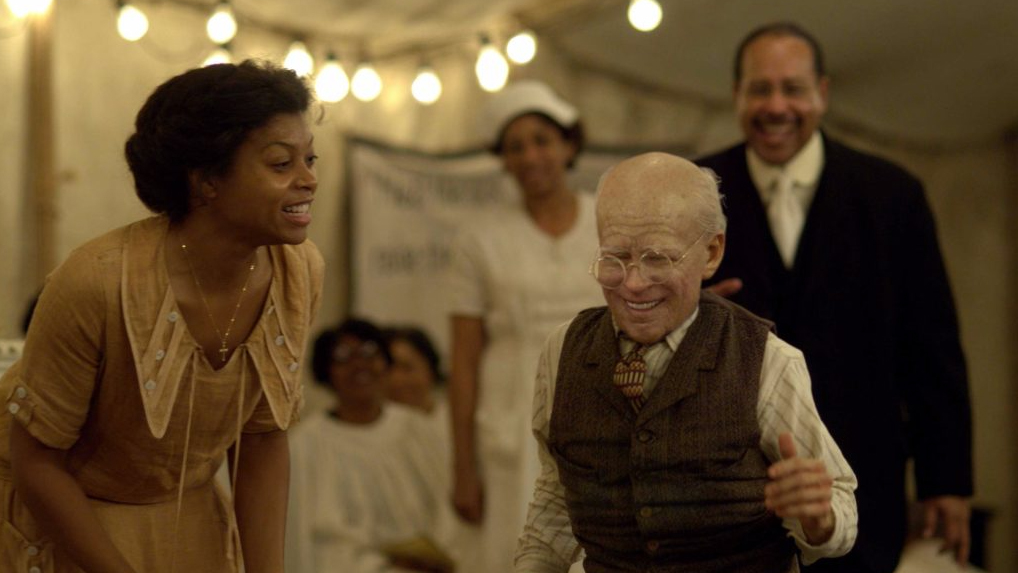
The Curious Case of Benjamin Button, released in 2008, is a departure from Fincher’s darker themes, yet it showcases his ability to tackle a wide range of genres.
Starring Brad Pitt and Cate Blanchett, the film is a tale of a man who ages backward.
What sets The Curious Case of Benjamin Button apart is its groundbreaking use of visual effects and makeup to create the illusion of reverse aging.
The film earned numerous awards, including three Academy Awards for Best Art Direction, Best Visual Effects, and Best Makeup.
While the film’s narrative might be more sentimental than some of Fincher’s other works, his skill in crafting a visually stunning and emotionally resonant story is evident.
The film’s tagline, “Life isn’t measured in minutes, but in moments,” encapsulates its poignant exploration of the human experience.
The Social Network: A Modern Classic

In 2010, David Fincher directed The Social Network, a film that explores the tumultuous creation of Facebook and the legal battles that ensued.
Written by Aaron Sorkin, the film is a sharp and witty examination of ambition, betrayal, and the power of technology.
The Social Network stands as a modern classic and earned critical acclaim, including three Academy Awards for Best Adapted Screenplay, Best Original Score, and Best Film Editing.
Jesse Eisenberg’s portrayal of Mark Zuckerberg, along with strong performances from the supporting cast, contributed to the film’s success.
Fincher’s approach to the film is marked by its frenetic pacing and sharp dialogue.
His collaboration with Trent Reznor and Atticus Ross on the score helped create a contemporary and unsettling atmosphere that perfectly complements the film’s themes.
One of the notable aspects of The Social Network is its exploration of the moral and ethical questions surrounding social media and technology.
It serves as a reflection on the impact of these platforms on society, making it a relevant and thought-provoking piece of cinema.
Gone Girl: A Chilling Exploration of Relationships
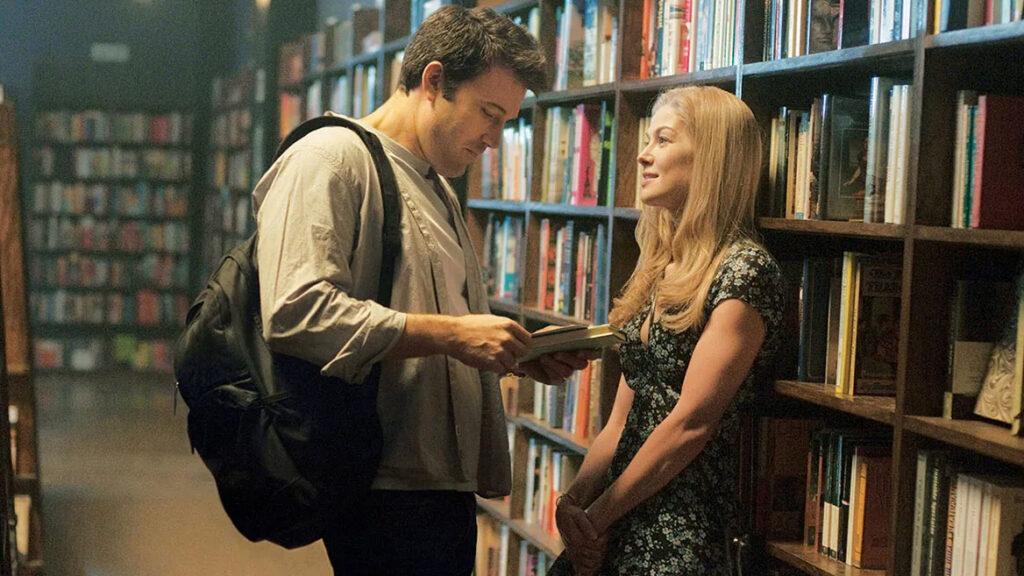
Released in 2014, Gone Girl is a psychological thriller based on Gillian Flynn’s best-selling novel.
The film stars Ben Affleck and Rosamund Pike and centers on the mysterious disappearance of a woman and the media frenzy that ensues.
David Fincher’s touch is evident in the film’s portrayal of complex characters and intricate relationships.
The film’s narrative structure, which delves into the perspectives of the husband and wife, keeps the audience engaged and guessing throughout.
It’s a masterclass in building suspense and delivering unexpected twists.
Gone Girl is a chilling examination of the dynamics of a modern marriage and the impact of the media on the truth.
Fincher’s attention to detail and his ability to create an atmosphere of unease make it a gripping and unsettling cinematic experience.
Mindhunter: An Exploration of Serial Killers
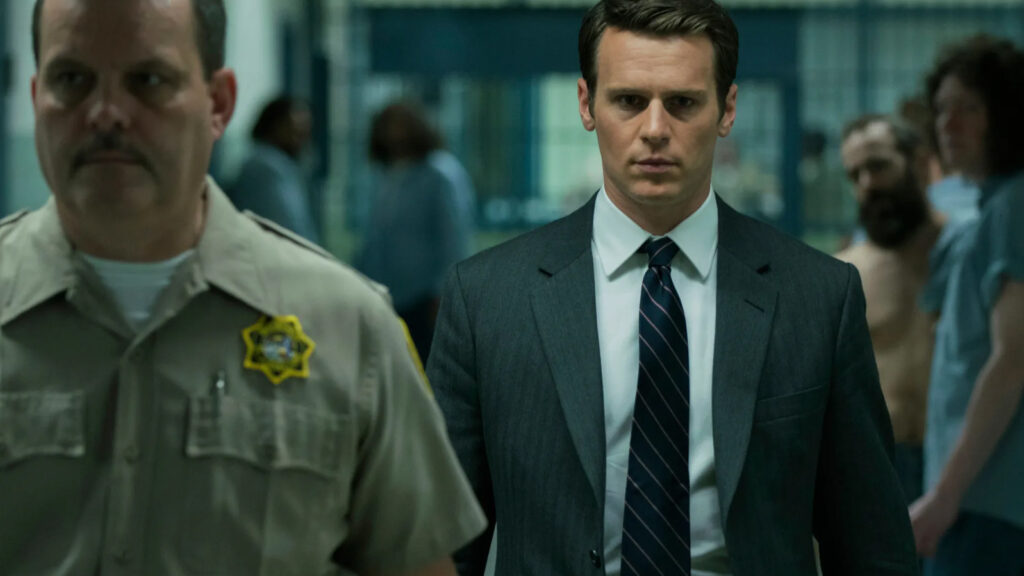
In addition to his work in feature films, David Fincher made a significant mark in the world of television with the series Mindhunter.
Premiering on Netflix in 2017, Mindhunter is a crime drama that delves into the early days of criminal psychology and the FBI’s Behavioral Science Unit.
The series, co-produced by Fincher, combines meticulous attention to detail with compelling character development.
It explores the minds of serial killers and the methods used by law enforcement to understand and apprehend them.
Jonathan Groff, Holt McCallany, and Anna Torv deliver outstanding performances in their roles as FBI agents.
Fincher’s fingerprints are all over Mindhunter.
His fascination with the psychology of criminals and his dedication to accuracy are evident in the series.
The dark and atmospheric tone of the show, reminiscent of his film work, immerses viewers in the world of criminal profiling.
While Mindhunter was well-received by both critics and audiences, it regrettably ended after its second season, leaving fans yearning for more of Fincher’s exploration of the human psyche.
Mank: A Return to Hollywood’s Golden Age
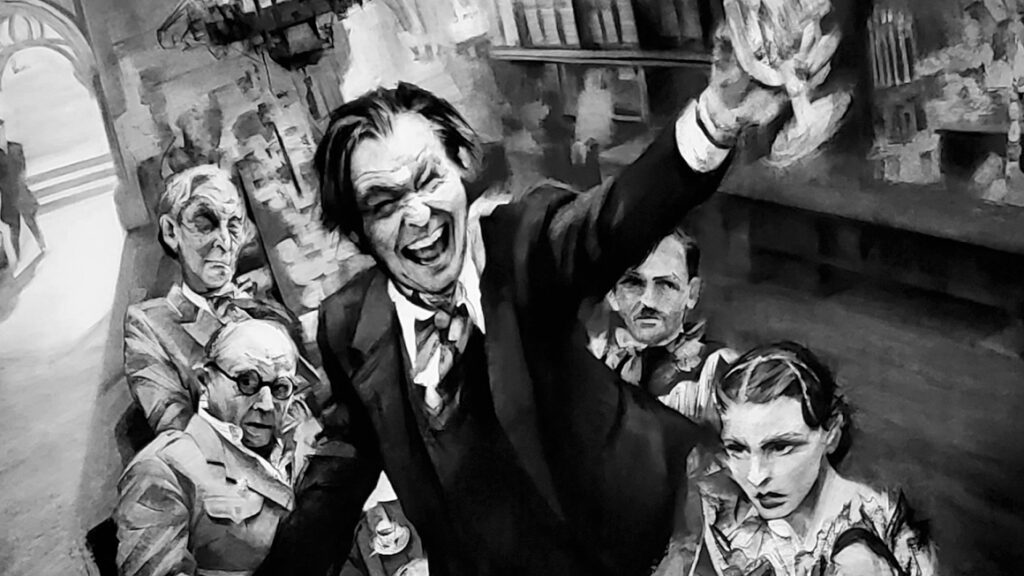
In 2020, David Fincher released Mank, a black-and-white biographical drama that takes a deep dive into the life of Herman J. Mankiewicz, the screenwriter of Citizen Kane.
The film stars Gary Oldman as Mankiewicz and explores the tumultuous development of Orson Welles’ iconic film.
Mank is a departure from the director’s more modern and dark-themed works, yet it retains his commitment to storytelling and his meticulous approach.
The film’s historical accuracy, attention to period detail, and cinematography that evokes the classic Hollywood era highlight Fincher’s versatility as a director.
The film was nominated for several Academy Awards, including Best Director, and earned critical acclaim for its performances and visual style.
It is a testament to Fincher’s ability to tackle a wide range of subject matter and periods in history.
Conclusion
David Fincher’s cinematic brilliance is undeniable.
His films are marked by meticulous attention to detail, a unique visual style, and a dedication to storytelling that captivates audiences.
From the dark and suspenseful “Se7en” to the thought-provoking “The Social Network,” and the historical exploration of “Mank,” Fincher’s body of work is a testament to his versatility as a filmmaker.
Throughout his career, Fincher has explored themes of obsession, alienation, and the darker aspects of human nature.
He has pushed the boundaries of cinematic storytelling, using innovative techniques and collaborations with talented individuals like Trent Reznor to create memorable and thought-provoking films.
As a director, producer, and visionary in the world of cinema, David Fincher’s impact is immeasurable.
His films continue to be celebrated and analyzed, and his legacy in the annals of cinematic history is unquestionable.
From his early days as an apprentice to his most recent endeavors, David Fincher’s cinematic brilliance is a true testament to the power of storytelling through the lens of a masterful filmmaker.

